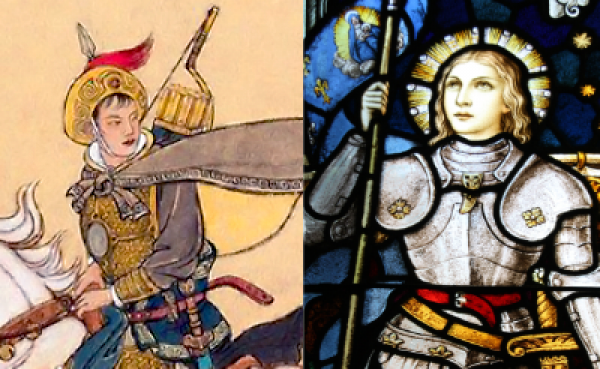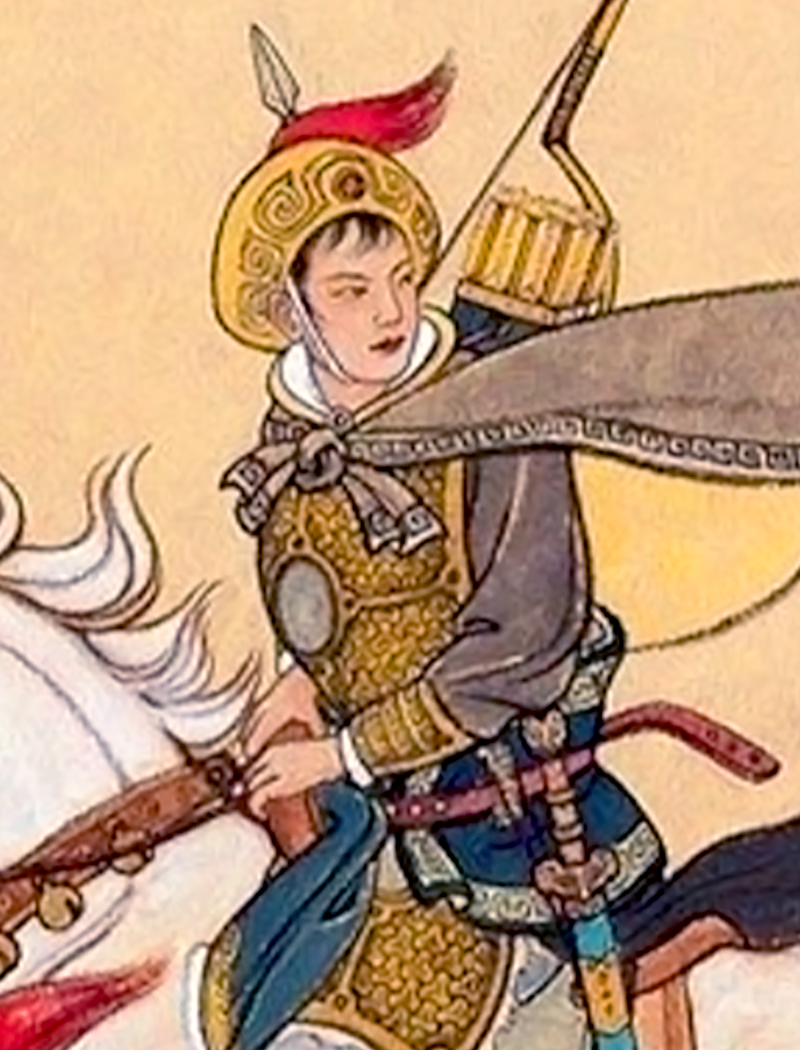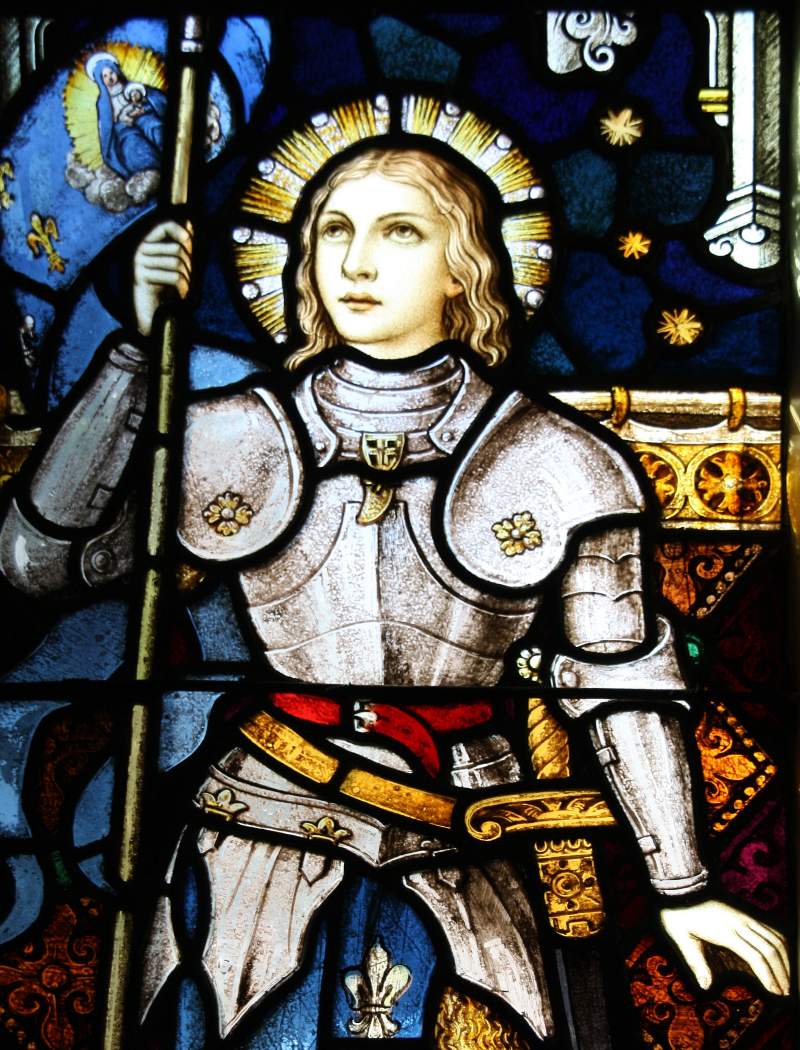In this series we look at historical figures from China’s past who have intriguing Western parallels.
Two female warriors of yore that come easily to mind are China’s Mulan and France’s Joan of Arc. Both women are distinguished not only for their bravery in battle, but also for adhering to their values and beliefs. Despite their obvious similarities, though, the two were also remarkably different.
Let’s start with Mulan.
Nowadays cartoons and movies have made Mulan a household name in the West. But in the East, people have been retelling her story for almost two millennia.
Although the exact date of her birth is unknown, her hometown is up for debate, and varying adaptions of her story have emerged throughout the dynasties, Mulan apparently did exist. She is most commonly recognized as Hua Mulan. The surname Hua means “flower,” and pairs artistically with her first name, which means “magnolia.”
Her story, captured in the Ballad of Mulan written during the Northern Wei Dynasty between the fourth and sixth centuries, tells the most popular version. With China at war against the Mongolian state of Rouran, every family received a conscription notice. But Mulan’s elderly father was in no shape for battle. His only son, Mulan’s brother, was just a child. Out of a sense of filial piety, Mulan cut her hair, geared up in dad’s armor, and set off in his place.
On the battlefield, Mulan was sharp-witted, brave, and successful. All the while, she managed to keep her gender a secret from her comrades-in-arms. Twelve years later, the soldiers returned triumphant. The emperor was quite impressed to learn of Mulan’s prowess on the battlefield, and wanted “him” (her) to serve as an official in the imperial court. Mulan graciously declined, asking only for a fast steed to get her home so she could care for her aging parents.
Meanwhile, oceans apart and centuries later, Joan of Arc took her place on the battlefield, leading soldiers to victory in Europe during the Hundred Years’ War.
Like Mulan, Joan of Arc (1412-1431) came from an ordinary family. Her parents farmed in a small village in northeast France. Her mother raised Joan as a devout Catholic. As a child, Joan was kind by nature, and would often fast, pray, and go out of her way to help the disadvantaged.
When she was thirteen, Joan said she heard angels, and even God, speaking to her. Through these revelations, she learned it was her mission to help France win the war against England, regain lost lands, and help the French prince become king.
Initially, most people didn’t believe the farm girl. But through unfaltering faith, she broke through all barriers, had an audience with the crown prince, and convinced him to grant her military power. In subsequent battles, she led French soldiers to several victories and greatly raised troop morale. To many, she was not only a military leader, but also a spiritual one.
In the end, Joan was captured while trying to relieve a besieged city. Following months of interrogation, she was sentenced to death as a heretic and burned at the stake. After 20 years, however, Joan’s name was restored, and four centuries later Napoleon made her a national symbol. Eventually, she was canonized as a saint.
Mulan and Joan of Arc enlisted for fundamentally different reasons. Mulan was driven by filial duty—a central tenet in traditional Chinese society. Although impersonating a soldier was punishable by death, she took the risk in order to save her father. And while she had to be careful to conceal her secret, she still went above and beyond defending her country.
As for Joan, she was driven by spiritual devotion. Despite everyone’s doubts, she remained steadfast in her faith in God and committed to the mission entrusted to her. She persisted, even after she was captured and abused, and all the way to her final moments before she was consumed by flames.
Although Joan and Mulan’s reasons for taking up the sword were different, the aura they emanated of determination, courage, and selflessness feel remarkably similar. And each warrior left an indelible mark in history, although only one got to be a main character on the Shen Yun stage.






